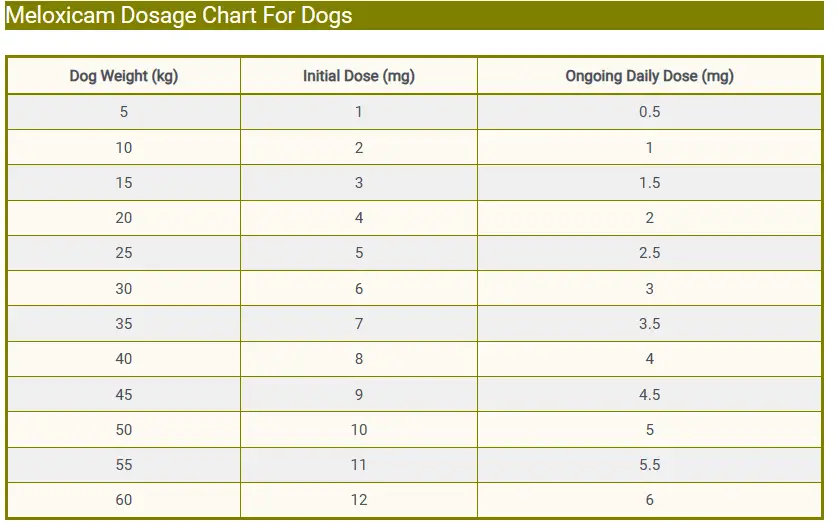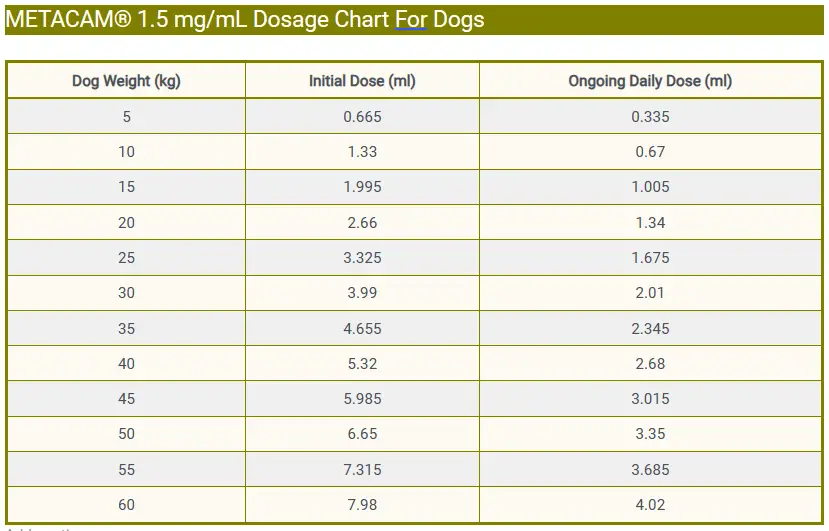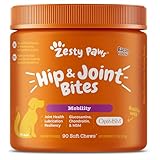The safe dosage of Metacam (Meloxicam) for dogs, for the treatment of pain, inflammation, and arthritis, is an initial dose of 0.2 mg/kg, followed by a ongoing dose of 0.1 mg/kg once daily.
METACAM® Meloxicam Dosage For Dogs

-
Ideal Dose: First dose is 0.2 mg/kg ongoing dose is usually 0.1 mg/kg once daily.
-
Uses: Pain, Inflammation, Arthritis
-
FDA Approved: Yes
-
Variants: Liquid, Oral spray, Chewable tablets
-
Storage & Handling: Room Temperature
-
Administration: Once Daily
Disclaimer: Self-medication can be hazardous. Please consult your veterinarian for personalized guidance on the appropriate dosage for your furry friend’s specific condition.
When our beloved furry friends are in pain, we naturally want to alleviate their discomfort as quickly and effectively as possible. However, administering medication to our canine companions requires careful consideration and understanding the appropriate dosage.
One such medication commonly prescribed for dogs suffering from pain, inflammation, or arthritis is Meloxicam.
In this blog post, we’ll delve into the intricacies of Meloxicam dosage for dogs, exploring the optimal treatment regimen to ensure our pets receive the relief they need while maintaining their health and well-being.
Meloxicam Dosage For Dogs
Meloxicam is a nonsteroidal anti-inflammatory drug (NSAID) commonly prescribed by veterinarians to manage pain and inflammation in dogs, particularly associated with conditions like osteoarthritis.
However, it’s crucial to follow your veterinarian’s instructions regarding dosage, as the appropriate dosage can vary depending on factors such as the dog’s size, weight, and specific medical conditions.
The recommended meloxicam dosage for dogs is 0.2 mg/kg, followed by an ongoing dose of 0.1 mg/kg once daily. The dosage of Metacam® oral suspension for dogs is 0.133 ml/kg for the initial dose and 0.067 ml/kg for the ongoing daily dose.
However, it’s essential to consult your veterinarian to determine the appropriate dosage for your dog, as they will consider various factors, such as the severity of the condition and any other medications your dog may be taking.
Never administer meloxicam to your dog without first consulting your veterinarian, as NSAIDs can have potential side effects and interactions with other medications.
It’s crucial to follow your veterinarian’s instructions regarding the duration of treatment and any other precautions to ensure the safety and well-being of your pet.
Meloxicam Dosage Chart For Dogs
| Dog Weight (kg) | Initial Dose (mg) | Ongoing Daily Dose (mg) |
|---|---|---|
| 5 | 1 | 0.5 |
| 10 | 2 | 1 |
| 15 | 3 | 1.5 |
| 20 | 4 | 2 |
| 25 | 5 | 2.5 |
| 30 | 6 | 3 |
| 35 | 7 | 3.5 |
| 40 | 8 | 4 |
| 45 | 9 | 4.5 |
| 50 | 10 | 5 |
| 55 | 11 | 5.5 |
| 60 | 12 | 6 |
METACAM® 1.5 mg/mL Dosage Chart For Dogs
| Dog Weight (kg) | Initial Dose (ml) | Ongoing Daily Dose (ml) |
|---|---|---|
| 5 | 0.665 | 0.335 |
| 10 | 1.33 | 0.67 |
| 15 | 1.995 | 1.005 |
| 20 | 2.66 | 1.34 |
| 25 | 3.325 | 1.675 |
| 30 | 3.99 | 2.01 |
| 35 | 4.655 | 2.345 |
| 40 | 5.32 | 2.68 |
| 45 | 5.985 | 3.015 |
| 50 | 6.65 | 3.35 |
| 55 | 7.315 | 3.685 |
| 60 | 7.98 | 4.02 |
Related Post: Vitamin E Dosage For Dogs
Uses
-
Managing osteoarthritis pain and inflammation.
-
Alleviating pain from soft tissue injuries.
-
Controlling postoperative pain and inflammation.
-
Providing relief from various sources of acute and chronic pain.
-
Improving mobility and quality of life for dogs with musculoskeletal disorders.
Related Post: Safe-Guard® Dosage For Dogs
Potential Side Effects
-
Gastrointestinal upset: Vomiting, diarrhea, or decreased appetite.
-
Renal toxicity: Kidney damage or failure.
-
Hepatic toxicity: Liver damage.
-
Gastrointestinal perforation: Ulceration of the gastrointestinal tract.
-
Changes in behavior: Lethargy, depression, or altered behavior.
-
Allergic reactions: Swelling, itching, or difficulty breathing.
-
Increased risk of bleeding: Interference with blood clotting.
-
Fluid retention: Swelling, especially in the legs or abdomen.
-
Central nervous system effects: Seizures or neurological symptoms.
Which Dogs Should Not Take Meloxicam
Canines with the following health issues should not take Meloxicam without veterinary recommendations.
-
Dogs with a history of gastrointestinal ulceration or bleeding
-
Dogs with kidney disease
-
Dogs with liver disease
-
Dogs with bleeding disorders
-
Pregnant or nursing dogs
-
Dogs hypersensitive to NSAIDs
-
Dogs with heart disease











![Can Dogs Eat Blood? 7 Side Effects [Expert Opinion]](https://petskor.com/wp-content/uploads/2022/04/Webp.net-resizeimage-12.jpg)
